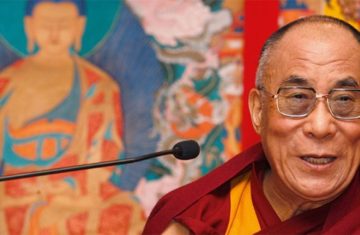Spiritual power builds up, but it also destroys. And that’s a good thing.
Now that we’ve walked through each of the panchabala, the five spiritual powers in Buddhist tradition, we can learn why each is considered a step on the path. In The Practice of Perfection, Robert Aitken puts it this way:
Faith destroys doubt.
Heroic perseverance destroys sloth.
Mindfulness destroys false options.
Concentration destroys wandering/confused thoughts.
Wisdom destroys self-centered preoccupation.
I love how clear this makes the practice. It’s the art of preventing doubt and sloth and those terribly wandering thoughts. When we view it in these terms, we can see why the panchabala are steps along the path to enlightenment. When we practice them, we not only cultivate these five virtues. We also prevent five destructive tendencies.
Most of these are self-explanatory, but I had to ponder the connection of mindfulness and false options. I think what he means is that we spend so much of our energy imagining situations, whether future or past, that are not possible. They are false options. (Insert note to self on most of our human anxiety here.) When we are mindful, we live in the reality of the present. And therefore, we limit our options to what is truly within our reach. What is likely. What is worth weighing as a possibility. What is really worth worrying about. It’s a much smaller list.
I also love that wisdom destroys self-centeredness. No wise person can possibly be selfish. Wisdom by its very nature requires us to see the world as connected, and as worthy of our best.
This post is part of the Paramita Project, where I’m practicing one paramita per month. You can read all my posts on bala, spiritual power, here.




